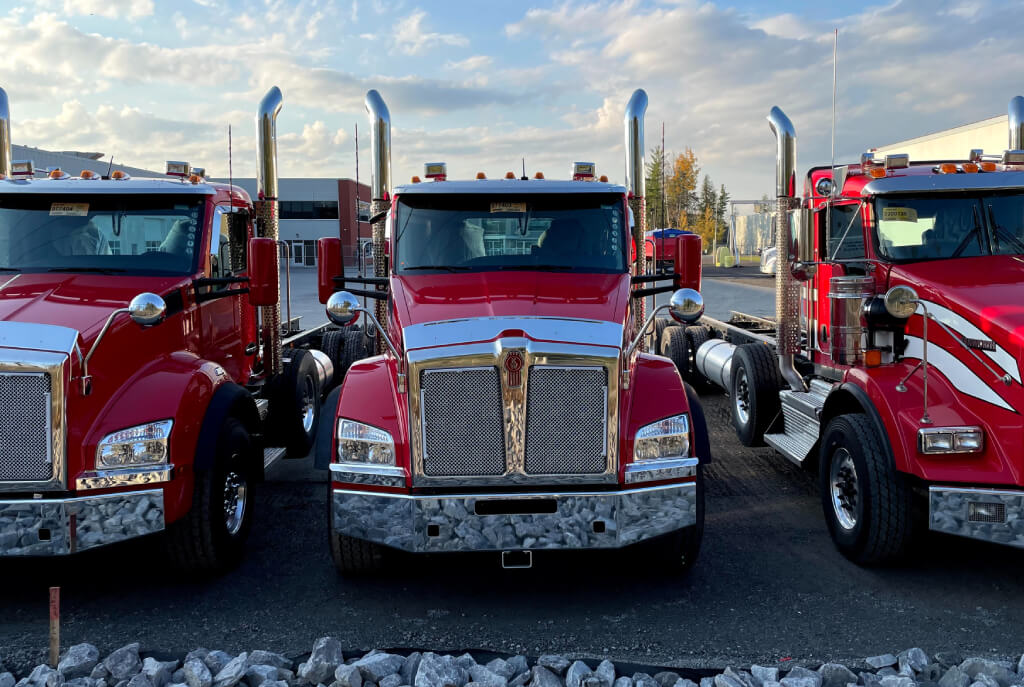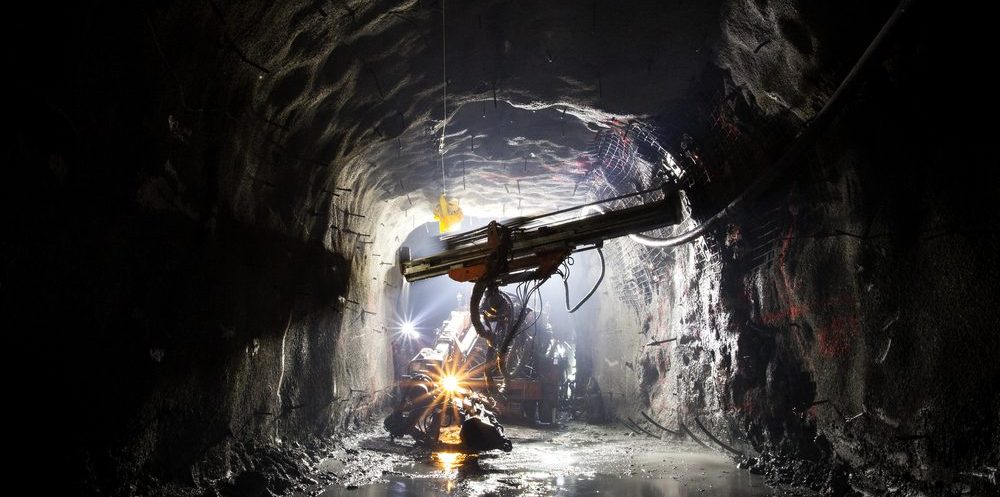Historically, mining has always been incredibly dangerous. For as long as mining operations have existed, the mining profession has been dogged by frequent worker mishaps occasionally leading to fatalities. Indeed, mining is often cited as one of the most dangerous jobs in the world because of the multiple hazards presented, such as exposure to toxic gasses, risk of falls, cave-ins, explosions, and many other associated perils. But with all the advances in mining technologies, safety protocols, and worker education, mining should (in theory) be getting less hazardous each year…right?
According to the National Institute for Occupational Safety and Health (NIOSH), “Over the last century, significant progress has been made in reducing the frequency of mining fatalities…which is the result of legislative, labor, corporate, research, and technological interventions.” To find out how effective all of those efforts have been, we’re going to dig deep into the Mine Safety and Health Administration’s (MSHA) fatality reports which list insightful statistics about the current state of mining safety. We’ll also look into the circumstances surrounding a few of the unfortunate fatalities of 2022 to date, to see what can be learned as the industry continues to strive toward better protections and safeguards for workers.
Non-Chargeable Mining Fatalities
The Code of Federal Regulation Title 30 part 50 directs mine operators to inform MSHA of accidents. The data is compiled into quarterly and annual reports and analyzed for trends. For injury and illness reporting purposes, MSHA breaks down mining into the following categories: coal, metal, nonmetallic, sand and gravel, and stone.
MSHA lists some fatality statistics as non-chargeable, meaning that after an investigation it determined that the death was “unrelated to mining activity” and thus “not counted in the statistics MSHA uses to assess the safety performance of the mining industry.”
Examples of non-chargeable fatalities include “homicides, suicides, deaths due to natural causes, and deaths involving trespassers.” In 2021, MSHA assessed 12 non-chargeable fatalities, all but one being related to natural causes.
Chargeable Mining Fatalities for 2022
As of August 24, 2022, there have been 19 mining fatalities so far this year. Thus, counting from Jan – July, there have been ~2.37 fatalities per month on average for 2022.
If that average monthly rate were to continue through 2022, by end of year there could be nearly ~29 fatalities. However, that’s a big “if” and there is no way to know for sure what the future will hold. Still, so far 2022 has had a lower monthly average than 2021, which listed 37 reported fatalities. 2022’s rate is on par with 2020, which had 29, and is slightly above 2018 and 2019 at this point.
Note, MSHA’s daily fatality report numbers are not updated daily, so information should be cross-checked against the actual Fatality Reports page to ensure the most current count.
End of Year Total Chargeable Mining Fatalities
2018
28
2019
27
2020
29
2021
37
2022
(As of 8/24)
Going back even further, from 2000-2017, fatality statistics since are as follows:
Year
2017
2016
2015
2014
2013
2012
2011
2010
2009
2008
2007
2006
2005
2004
2003
2002
2001
2000
Fatalities
27
24
26
43
41
35
37
71
34
52
67
73
57
55
56
66
72
85
Fatality Rate per 100k FTE
10.97
10.09
9.77
15.14
14.19
11.73
12.44
25.74
12.71
16.77
21.90
24.18
19.75
20.29
21.80
25.09
25.64
30.15
Now let’s review the MSHA data to see which categories fatalities have been falling under for 2022. MSHA lists the following chargeable mining fatalities categories:
Chargeable Mining Fatality Categories
- Electrical – 0
- Exp Vessels Under Pressure – 0
- Exp & Breaking Agents – 0
- Fall/Slide Material – 1
- Fall of Face/Rib/Highwall – 2
- Fall of Roof or Back – 2
- Fire – 0
- Handling Material – 0
- Hand Tools – 0
- Nonpowered Haulage – 3
- Powered Haulage – 1
- Hoisting – 0
- Ignition/Explosion of Gas/Dust – 0
- Inundation – 0
- Machinery – 7
- Slip/Fall of Person – 2
- Step/Kneel on Object – 0
- Striking or Bumping – 0
- Other (drowning) – 1
As the data shows, the main categories were related to falls, slips, machinery, powered haulage, and nonpowered haulage (defined as “wheelbarrows, manually pushed mine cars and trucks, etc”).
2022 Mining Fatalities To-Date
Below are the chargeable mining fatalities so far reported for 2022. We will examine a few cases in which both the preliminary report is posted, and a fatality alert is listed. As noted by MSHA, any details do not “represent final determinations regarding the nature of incident or conclusions regarding the cause of the fatality.”
August 23, 2022
Classification: Machinery
Location: El Segundo, New Mexico
Mined Material: Coal (Bituminous)
No preliminary report posted yet.
August 17, 2022
Classification: Powered Haulage
Location: Tunnel Ridge Mine, West Virginia
Mined Material: Coal (Bituminous)
Preliminary Report Review: “A miner died when the supply car on which he was sitting was struck by a locomotive. He fell and was caught between the supply car and its coupler.” No further details listed yet.
August 4, 2022
Classification: Machinery
Location: Wooten Sand & Gravel, Inc., Arkansas
Mined Material: Construction Sand and Gravel
Preliminary Report Review: “A co-owner / president died when he was struck by a bulldozer while he was working on it at the mine’s shop.” No further details listed yet.
July 21, 2022
Classification: Machinery
Location: Giant Cement Company, South Carolina
Mined Material: Cement
Details: “A miner received fatal injuries when his right arm became entangled in an auger (screw) conveyor.”
Best Practices suggested:
- Secure all conveyor covers in place during normal operation. Keep tools, clothing, and body parts away from moving conveyors.
- De-energize, lock out, tag out, and block machinery against hazardous motion before performing repairs or maintenance. Never perform work on a moving conveyor.
- Examine work areas and equipment. Report defects to miners and assure defects are corrected and recorded. Test emergency shut-off devices frequently.
June 20, 2022
Classification: Machinery
Location: Kimballton, Plant #1, Virginia
Mined Material: Lime
Details: “A 50 year-old miner died when the excavator he was operating underground slid over an elevated loading pad and was engulfed by lime dust.”
Best Practices suggested:
- Conduct workplace examinations prior to beginning work and assure hazards are corrected.
- Train miners to identify and report hazards and stay clear of potentially unstable areas.
June 20, 2022
Classification: Slip or Fall of Person
Location: 3 M Little Rock Industrial Mineral Prod, Arkansas
Mined Material: Crushed Broken Granite
Details: “A contract driller was working outside of his drill when he fell from the top of a highwall.”
Best Practices suggested:
- Wear fall protection when there is a danger of falling. Assure fall protection has a suitable fall arrest and a secure anchorage system.
- Train miners to properly use their personal protective equipment and to recognize potential hazards from falls and to safely perform tasks.
- Provide communication systems when assigning miners to work alone.
June 17, 2022
Classification: Machinery
Location: Jackson Quarry, Georgia
Mined Material: N/A
Details: “A contract miner died when the compactor he was operating overturned, pinning him beneath the cab. As the miner was backing up, the left tire went off the edge of a four-foot embankment, causing the compactor to overturn.”
Best Practices suggested:
- Wear seat belts at all times when operating equipment.
- Train miners to perform tasks safely, and to recognize potential hazards.
March 22, 2022
Classification: Drowning
Location: AMI Silica LLC, Wisconsin
Mined Material: Sand Industrials NEC
Details: “A 44 year-old heavy equipment operator drowned after the floating pump station he was standing on capsized. At the time of the accident, the miner was assisting a co-worker in connecting a water discharge line.”
Best Practices suggested:
- Design and use floating platforms in a manner that complies with the manufacturer’s specifications and recommendations.
- Before working on a floating platform:
- Implement safe work procedures that take into account potential hazards from rain, ice, freezing temperatures, and other environmental conditions.
- Perform adequate workplace examinations, especially on floating platforms that are infrequently used. Check parts that are subject to rust, sun damage, water damage, etc. over long periods of time.
- Wear life jackets where there is danger from falling into water.
March 20, 2022
Classification: Fall of Roof or Back
Location: D-29 Darby Fork, Kentucky
Mined Material: Coal (Bituminous)
Details: “A 33 year-old miner died when he was struck by a roof fall while moving a waterline outby the retreat mining section. The intersection of the fall area was supported with five-foot fully grouted roof bolts and 10-foot cable bolts. The roof fall was approximately 40 feet long, 18 feet wide, and five feet thick.”
Best Practices suggested:
- Conduct a visual examination of the roof, face, and ribs immediately before any work is started in an area.
- Be alert to changing roof conditions, especially during retreat mining.
- Train miners on how to identify hazardous roof and rib conditions.
March 4, 2022
Classification: Machinery
Location: Brunswick Canyon Materials LLC, Nevada
Mined Material: Construction Sand and Gravel
March 2, 2022
Classification: Fall of Face, Rib, Side or Highwall
Location: Maple Springs Mine, Pennsylvania
Mined Material: Coal (Bituminous)
February 28, 2022
Classification: Machinery
Location: Berwind Deep Mine, West Virginia
Mined Material: Coal (Bituminous)
February 14, 2022
Classification: Powered Haulage
Location: Cortez District-Underground, Nevada
Mined Material: Gold Ore
January 28, 2022
Classification: Powered Haulage
Location: Freeport-McMoRan Morenci Inc, Arizona
Mined Material: Copper Ore NEC
January 26, 2022
Classification: Powered Haulage
Location: Ouachita Rock Potable, Arkansas
Mined Material: Construction Sand and Gravel
January 14, 2022
Classification: Slip or Fall of Person
Location: Ohio County Mine, West Virginia
Mined Material: Coal (Bituminous)
January 11, 2022
Classification: Falling, Rolling, or Sliding Rock or Material of Any Kind
Location: Colmar, Kentucky
Mined Material: Coal (Bituminous)
January 7, 2022
Classification: Fall of Roof or Back
Location: 1366 Laurel, Pennsylvania
Mined Material: Crushed Broken Limestone NEC
January 7, 2022
Classification: Machinery
Location: Oaktown Fuels Mine No. 1, Indiana
Mined Material: Coal (Bituminous)
Conclusion
Mining is a dangerous business. The industry as a whole does a considerable amount of work to ensure miner safety. As the suggested best practices demonstrate, mine operators can often mitigate such incidents by following and enforcing daily industry-standard precautions.
The stakes are high, as loss of life can occur in the span of a moment. One poor choice can cost a life, and that is why continuous training can make the difference between returning home or ending the day in a hospital or worse.




